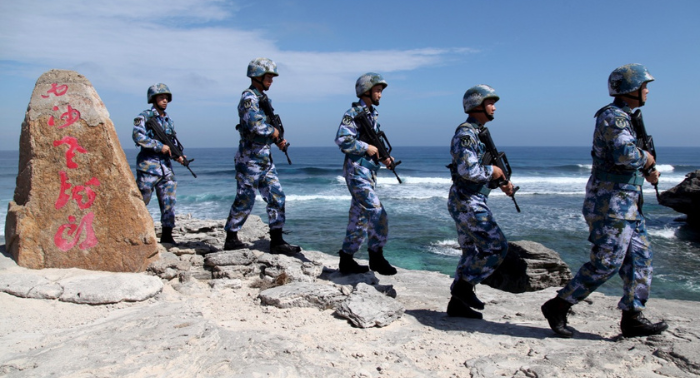The defense chief of the Philippines has issued orders to bolster the military presence on the northernmost islands near Taiwan, aiming to strengthen Manila’s territorial defense capabilities.
During his visit to naval facilities on Tuesday, Defense Secretary Gilberto Teodoro emphasized the need for developing additional structures on the remote Batanes islands, situated less than 200 km (125 miles) from Taiwan, as per a statement from the Philippine navy.
Teodoro remarked, “Starting 2024, the operational tempo for the AFP (Armed Forces of the Philippines) will be higher,” indicating a renewed focus on defense readiness.
The Bashi Channel, located between these islands and Taiwan, serves as a critical choke point for vessels navigating between the western Pacific and the contested South China Sea. Taiwan’s defense ministry has reported frequent passage of Chinese military ships and aircraft through this channel.
In November, the Philippines and the United States initiated joint patrols in the waters off the Philippines’ northernmost point as part of their ongoing cooperation efforts.
Teodoro underscored the strategic importance of Batanes, describing it as the “spearhead of the Philippines as far as the northern baseline is concerned.” His visit, accompanied by AFP and Navy chiefs, signifies a significant moment in the nation’s commitment to territorial defense and national security, according to the Philippine navy.
Reports in August indicated discussions between the U.S. military and Philippine authorities regarding the development of a civilian port in Batanes. Such a move would enhance American access to strategically positioned islands facing Taiwan.
In 2023, the Philippines nearly doubled the number of military bases accessible to U.S. forces, including three facing Taiwan. China, which lays claim to Taiwan, criticized these actions, accusing them of exacerbating regional tensions.
Batanes played a crucial role as one of the training sites during last year’s Balikatan joint military exercises involving over 17,000 Filipino and American troops, marking the largest-ever edition of the annual drills.
Recent agreements between the Philippines and Vietnam aim to prevent incidents in the South China Sea and expand cooperation between their coast guards, likely drawing disapproval from China. These agreements, along with discussions on enhancing information-sharing and training exchanges between the two countries’ militaries, were reached during Philippine President Ferdinand Marcos Jr.’s visit to Hanoi.
Tensions between China and neighboring countries like the Philippines and Vietnam have intensified in the South China Sea. Marcos expressed concerns over Chinese actions during his discussions with Vietnamese Prime Minister Pham Minh Chinh, highlighting incidents such as water cannon assaults by the Chinese coast guard on Philippine vessels near disputed areas.
While advocating for peaceful dialogue, Marcos reiterated the Philippines’ commitment to defending its sovereignty and jurisdiction against any provocations in the South China Sea. He emphasized the need to deescalate tensions during his conversation with Chinese President Xi Jinping, underscoring the importance of resolving disputes through peaceful means.




